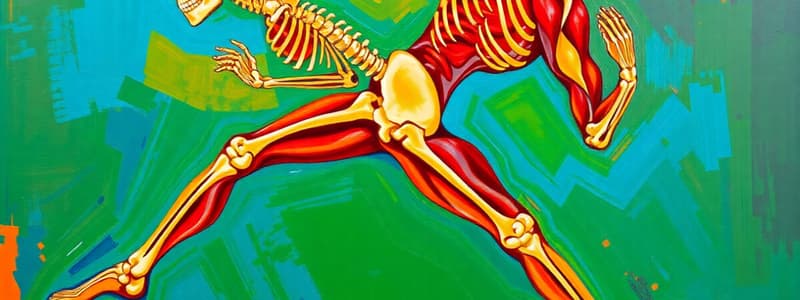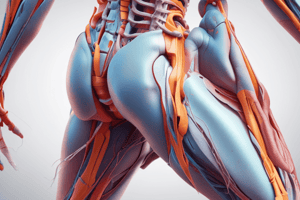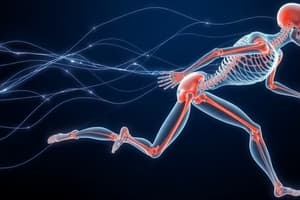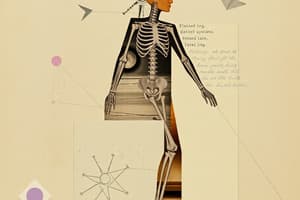Podcast
Questions and Answers
What are the active parts of the human movement system?
What are the active parts of the human movement system?
- Cartilage
- Muscles (correct)
- Ligaments
- Bones
What function do bones NOT serve in the human body?
What function do bones NOT serve in the human body?
- Support for the body
- Storage of minerals
- Production of hormones (correct)
- Protection of internal organs
Which component of the skeleton is primarily responsible for connecting bones?
Which component of the skeleton is primarily responsible for connecting bones?
- Cartilage
- Muscles
- Tendons
- Ligaments (correct)
What role does cartilage play in the skeletal system?
What role does cartilage play in the skeletal system?
Which statement accurately describes ligaments?
Which statement accurately describes ligaments?
Flashcards
Human movement system
Human movement system
A system in the body made up of bones and muscles working together for movement.
Bone function
Bone function
Provide support, protection, and blood cell production.
Cartilage
Cartilage
Softer tissue that's part of the skeleton.
Ligament function
Ligament function
Signup and view all the flashcards
Skeleton Components
Skeleton Components
Signup and view all the flashcards
Study Notes
Human Movement
- Human bodies are designed for movement
- The musculoskeletal system is responsible for movement
- Bones (passive component) and muscles (active component) work together for movement
Bones
- Bones form the skeletal structure of the body
- They support and protect internal organs
- Bones also produce blood cells and store minerals
Muscles
- Muscles are the active component of movement
- Muscle action involves the bones
- Muscles and bones work together to produce movement
Cartilage and Ligaments
- Cartilage is a softer tissue than bone, part of the skeletal structure
- Ligaments connect bones together, and they are the most elastic part of the skeleton
- Ligaments are what keeps the skeleton stable and connected
Studying That Suits You
Use AI to generate personalized quizzes and flashcards to suit your learning preferences.




